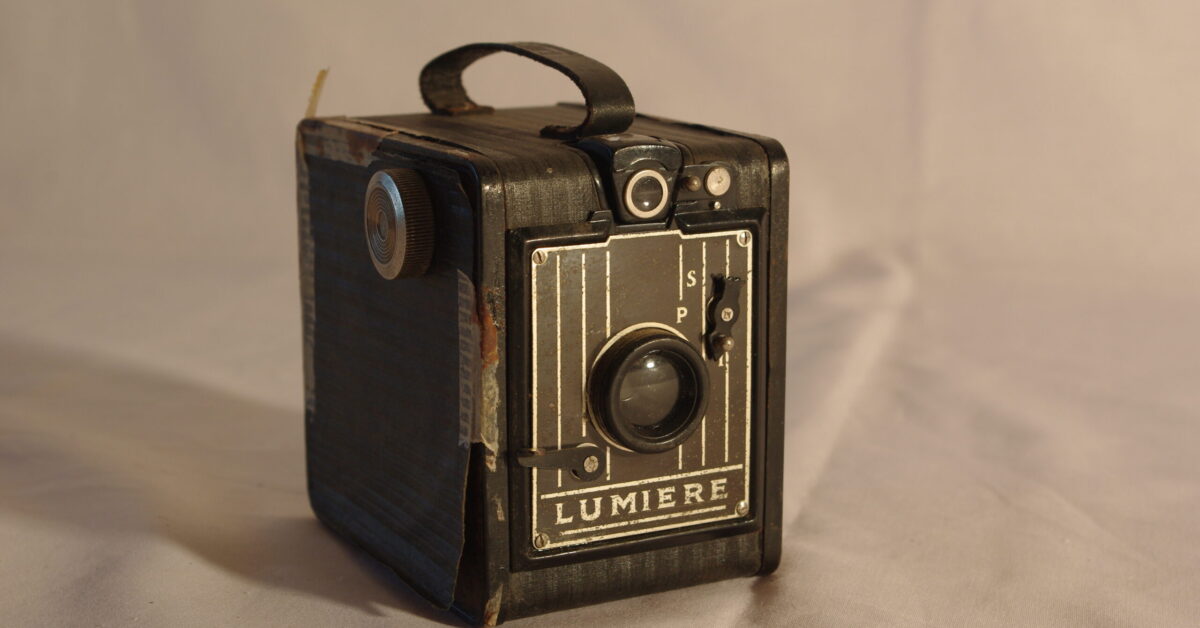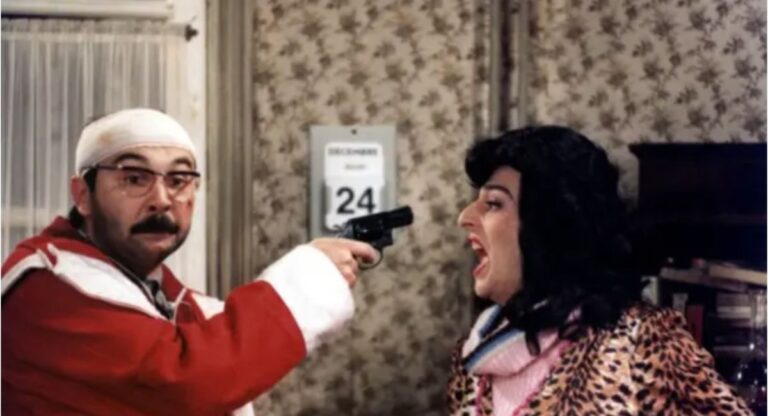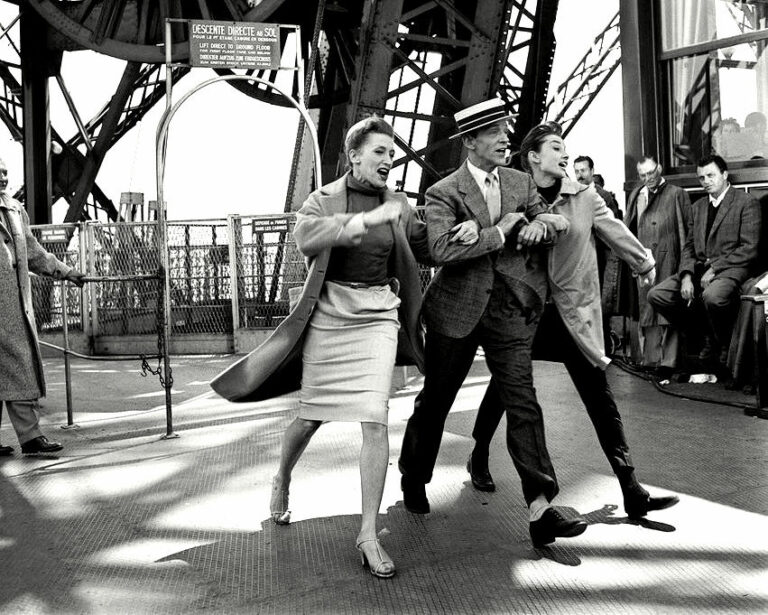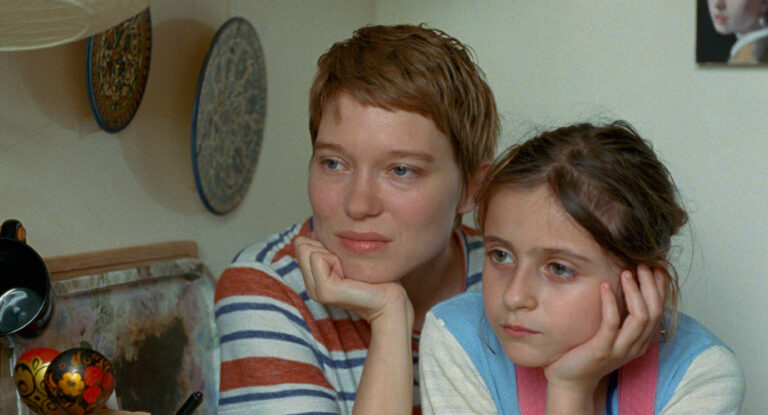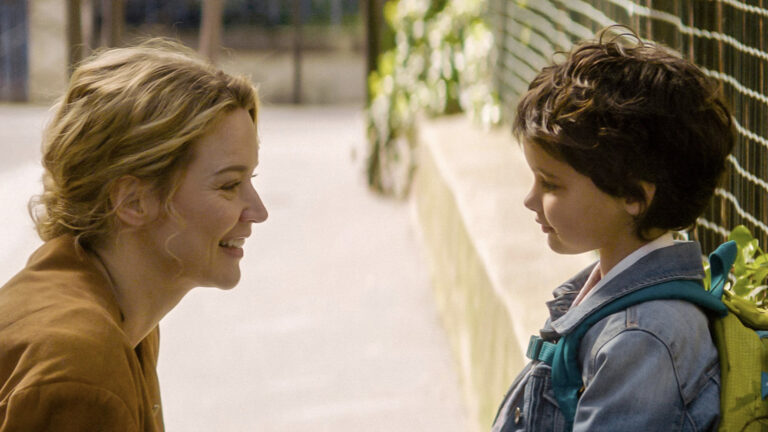Since the prophetically named Lumière brothers invented cinema in 1895 and right through the Nouvelle Vague film movement in the 1950s and 60s, American filmmakers have been enthralled by French films. Art house flicks like François Truffaut’s Shoot The Piano Player and Jean-Luc Godard’s Breathless are required watching in film schools across the country, and some of France’s most successful directors, like Luc Besson, have found even greater success here.
But like their French compatriots, US moviegoers have never been over the moon about reading subtitles when they’re supposed to be watching a film. The top twenty highest-grossing French films at the domestic box office reflect that fact, even accounting for the adjusted ticket prices, are more an expression of populist exception than anything else. Here’s what’s done the best at the domestic box office:

Directed and co-written by Diane Kurys, whose work in the 80s was instrumental in raising the profile of female directors in the mainstream, Entre Nous (Coup de Foudre in French; it means “love at first sight” idiomatically and “bolt of lightning” literally) explores the relationship between two young women in the 1950s as their intimate friendship throws their troubled marriages into sharp relief. The movie won four César Awards and was nominated for an Academy Award for Best Foreign Language Film (which it lost to Ingmar Bergman’s Fanny And Alexander).

Written and directed by Francis Veber (and based on his play of the same name), Le Dîner de Cons is a comedy about a group of high-profile men who have weekly dinners where each must bring the biggest buffoon possible for the amusement of all assembled—save the idiots, of course. The hijinks-filled film garnered three César Awards out of six nominations and had a total box office of $78.6 million worldwide against a $12.5 million budget. If the plot seems familiar, you might be remembering the 2010 American remake Dinner For Schmucks, starring Paul Rudd, Steve Carell, and Flight Of The Conchords‘ Jemaine Clement.

Set in occupied France in the waning years of World War II, Louis Malle’s autobiographical film concerns the goings-on of a boarding school where the Pére has agreed to hide and shelter Jewish children, a fact that the main character, Julien, discovers before forging a close friendship with one of the boys. A joint production of France and West Germany, Au Revoir, Les Enfants won the Golden Lion at the Venice Film Festival, seven César awards including Best Director and Best Writing, was nominated for Best Foreign Language Film and Best Original Screenplay at the Academy Awards and Best Foreign Language Film at the Golden Globes. It lost the Academy Award to Denmark’s Babette’s Feast.

Starring Yves Montand and famous Russian actor Gérard Depardieu, Jean de Florette tells the story of two Provençal farmers trying to swindle a tax collector out of his inheritance. The film, based on a novel by Marcel Pagnol, was massively successful in France, well-reviewed in the US (earning 3.5 out of 4 stars from Roger Ebert), and won four BAFTA awards and the César for Best Actor (it had been nominated for eight Césars total).

Before he became a known action director in the United States with movies like The Fifth Element, Luc Besson wrote and directed La Femme Nikita (an auditory francophonic pun on “la femme ne quitte pas”), starring Anne Parillaud as a convicted murder who becomes a Jane-of-all-trades assassin in order to pay her debt to society. The movie was the 8th-highest grossing of the year in France and was remade by Warner Bros. as Point Of No Return, starring Bridget Fonda, in 1993, before becoming a USA Network TV series in 1997. Siskel and Ebert gave the film a positive review, but the critical response was, for the most part, very mixed. La Femme Nikita won zero César Awards.

Set against the backdrop of French colonial Vietnam, Indochine stars Catherine Deneuve as the owner of a rubber plantation in the 1930s, just as the country’s colonial rule is coming to an end. After a fatal crash, she adopts the orphaned child of her friends, who are from the Nguyen dynastic line, and they eventually both fall, in their own ways, for the same naval lieutenant. Deneuve was nominated for a Best Actress Academy Award for her role in the film, which also won the Academy Award and Golden Globe for Best Foreign Language Film in 1993.

Making his second appearance on the list, Gérard Depardieu plays the titular character in this film adaptation of Edmond Rostand’s famous play, in which the Parisian poet with the prominent proboscis tutors his romantic enemy in the ways of wooing the beautiful Roxane, writing love letters and poetry for the attractive but ineloquent rival. Depardieu won the Best Actor award at Cannes for his portrayal of Cyrano and was nominated for a Best Actor Academy Award; the film won 10 Césars out of 13 nominations, a record-setting feat.

Making her first appearance on the list, Audrey Tatou stars as the young and upcoming Coco Chanel, charting her life from orphanage to seamstress to fashion icon. Based on the biography Chanel And Her World by Edmonde Charles-Roux, the film earned $43.8 million worldwide against a $23 million budget, four BAFTA nominations, six César nominations, and an Academy Award nomination. The only major award it ended up winning, oddly enough, was the César for Best Costume Design.

Written and directed by Guillaume Canet (whose 2003 movie with Marion Cotillard, Love Me If You Dare, unfortunately doesn’t appear on this list) and based on the novel by Harlan Coben, Ne Le Dis à Personne is a thriller about a doctor who comes under suspicion of committing a double homicide just eight years after the murder of his wife by a serial killer. Canet won Best Director at the César awards for the film, one of four Césars the movie garnered.

Audrey Tatou reappears on the list for this World War I drama about one woman’s search for her missing fiancé, which takes her on a journey through the undiscovered corruptions and inhumanities of war. Directed by Jean-Pierre Jeunet, best known for The City Of Lost Children and Delicatessen, and best forgotten for Alien: Resurrection, the film managed not to be selected by France as its entry for that year’s Best Foreign Language Film Academy Award—yet it still nabbed nominations for Best Cinematography and Best Art Direction. The César Awards, however, were very generous to the film, conferring twelve nominations, five of which were wins, including a Best Actress in a Supporting Role award for Marion Cotillard. Best not to feel too bad for Tatou and Jeunet—they’ll get their turn soon enough.

Francis Veber returns as writer and director, this time for Le Placard (The Closet), a film about a divorced man who pretends to be gay in order to keep his job as an accountant at a rubber factory and, as they say in Hollywood, “hijinks ensue.” Starring Daniel Auteuil, the film also stars Gérard Depardieu as a homophobic coworker who may in fact be a little bit gay himself, surprising no one. Worldwide, the comedy brought in just over $50 million, and Rolling Stone called it “a bonbon spiked with mirth and malice.” It won zero Césars.

Just barely edging out Le Placard, Amour was a critical darling of a film, earning praise from AO Scott of the New York Times, and near universal acclaim for actress Emmanuelle Riva, who plays one half of an elderly couple who face the unavoidable deterioration of their waning years. Riva became the oldest person to be nominated for a Best Actress Academy Award—she didn’t win, but she did snag the BAFTA for Best Leading Actress and the César for Best Actress. The film received five total Oscar nods and won for Best Foreign Language Film, as well as ten César nominations and five wins. Director Michael Haneke took home the Cannes Film Festival’s Palme d’Or for the film.

This sequel film, with some writing and dialogue by original screenwriter Francis Veber, concerns a web of conspiracy surrounding female impersonator Albin Mougeotte as government agents chase him and his partner after a spy plants highly sensitive microfilm on Albin. The film grossed an impressive (for the time) $11 million worldwide, and received praise from noted film critic Pauline Kael from The New Yorker.

Written and directed by Olivier Nakache and Éric Toledano, The Intouchables stars François Cluzet as a rich quadriplegic and Omar Sy as his reluctant caregiver and the burgeoning friendship between the two. The movie became France’s second-biggest box office hit of all time, earning $426 million worldwide, eight César awards and one win (Omar Sy for Best Actor), and a Golden Globe nomination for Best Foreign Language Film.

Then relatively unknown in the US except as Billy Crudup’s pregnant wife in Big Fish and the mercurial love interest in Ridley Scott’s A Good Year, Marion Cotillard made her critical bones in America off this portrayal of French chanteuse Edith Piaf, garnering the Oscar for Best Actress and the Golden Globe for Best Actress in a Comedy or Musical, as well as an eventual role in Christopher Nolan’s Inception. Cotillard also won the César, BAFTA, and Prix Lumiére for best actress. The film itself was nominated for ten total Césars and won four.

Christophe Gans’ historical fiction film explores the loose and lupine background of a series of real-life murders in 18th century France, filled with the sort of high-octane fight choreography and cinematography you usually expect to see out of Hong Kong films. It received fairly positive critical responses and is easily the most entertaining and (possibly second-most) visually stunning movie on this list. The film grossed nearly $71 million worldwide against a budget of $29 million.

Not generally considered a “French” film, Luc Besson’s The Professional was produced by Gaumont and his own company, Les Films du Dauphin, making it resolutely French, despite being entirely in English. The film stars Jean Reno as a paid assassin who takes in a young neighbor (played by Natalie Portman) after her family is murdered by corrupt DEA agents. The film received a slightly neutered American edit, but the performances by Reno, Portman, and Gary Oldman stand out even if you don’t watch the director’s cut. It did not win any of the seven César awards for which is was nominated. A sequel, starring Portman as the adult, working assassin version of her original role, has been rumored for years.

The original adaptation of the 1973 stage play, La Cage aux Folles tells the story of a nightclub owning gay couple whose son brings his fiancée and her ultra-conversative parents to meet the in-laws. This joint French-Italian production was so good, its American remake attracted Nathan Lane and Robin Williams, which should be accolades enough, but the film also brought in three Academy Award nominations and one César nomination for Michel Serrault for Best Actor. Its $20.4 million domestic take is just shy of one-sixth of The Birdcage‘s $124.1 million box office (and $40 million short of its foreign rentals).

Audrey Tatou and Jean-Pierre Jeunet get their comeuppance with Le Fabuleux Destin d’Amélie Poulain, the quirky comedy and visual carnival that brought Tatou and, to a certain extent, the Parisian neighborhood of Montmartre, to America’s attention. After being deemed “uninteresting” by the Cannes Film Festival, the movie went on to gross $173 million worldwide, making it one of the biggest crossover films ever produced by France. Amélie received almost unanimous critical acclaim, including 3.5 out of 4 stars from Siskel & Ebert and high praise from Rolling Stone, The New Yorker, The AV Club, Wall Street Journal, New York, The Village Voice, and more. Even the New York Post liked it. The film was nominated for five Academy Awards, including Best Original Screenplay and Best Cinematography, and it won four César awards, including Best Director and Best Film. In 2010, the American Society of Cinematographers name Amélie the best-shot movie of the 2000s.

While it appears nowhere on Box Office Mojo’s list of top-grossing foreign films in the US, a French director, lead actor, and lead actress, all making a film produced by a scad of French companies, certainly should count on this list. Jean Dujardin’s performance as silent-era film star grasping with a world that increasing wanted talkies is a master class in nuance, and the stylistic rigor of director Michael Hazanavicius is stunning. The Artist has a separate Wikipedia page for its laundry list of accolades totaling 185 nominations and 94 wins. It received ten Academy Award nominations and five wins, including Best Picture, Best Directing, and Best Actor; twelve BAFTA nominations and seven wins, including Best Film, Direction, Actor, Cinematography, and Screenplay; and ten César nominations and six wins, finally netting Bérénice Bejo a win for Best Actress, while Dujardin lost to Omar Sy of The Intouchables.
The Artist earned $133.4 million worldwide, putting it $40 million behind Amélie globally, which brings us to the question of adjusted box office. By 2011 standards, Amélie‘s $33.4 million grows to $46.8 million, meaning it technically beats The Artist, but then The Professional rises to $37 million by the same standards, and La Cage aux Folles swells to an estimated $64.5 million and the undisputed top spot. But since exact admission numbers aren’t available, the box office / average ticket price in the year of release x average 2011 ticket price isn’t terribly solid science. But, then, what about the moviegoing experience is?

